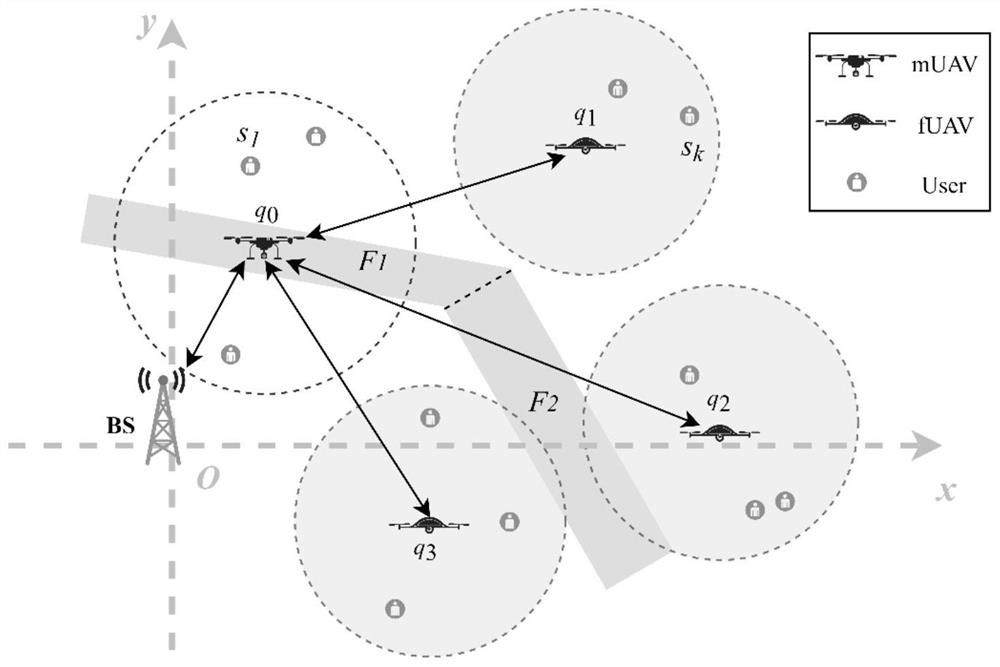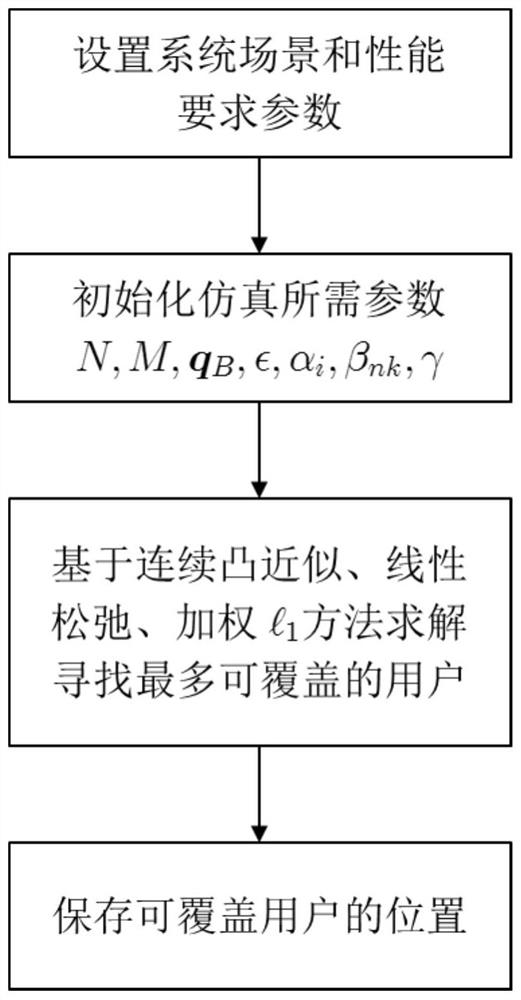Unmanned aerial vehicle cluster deployment method based on ground cellular system
A drone and ground technology, applied in the field of drone communication and resource management, can solve the problems of heavy load and limited coverage, and achieve the effect of simple algorithm operation process and fast iterative convergence
- Summary
- Abstract
- Description
- Claims
- Application Information
AI Technical Summary
Problems solved by technology
Method used
Image
Examples
Embodiment
[0073] figure 1 It is a schematic diagram of the process flow of the UAV cluster deployment method based on the ground cellular system, refer to figure 1 , including the following steps:
[0074] S1 Determine the location and altitude of the user in the area to be deployed, the location of the base station, the initial number and flight height of the UAV, the road position of the tethered UAV, and the position constraints of the tethered UAV, the tethered The maximum communication radius constraint between the man-machine and the base station, the maximum communication radius constraint between the tethered UAV and the non-tethered UAV, and the maximum communication radius constraint between the UAV and the user are constraints;
[0075] figure 2 For this embodiment, a schematic diagram of a scenario based on a terrestrial cellular system is provided, refer to figure 2 , K ground users are randomly distributed in an area, and a ground base station is set in the area to be...
PUM
 Login to View More
Login to View More Abstract
Description
Claims
Application Information
 Login to View More
Login to View More - R&D Engineer
- R&D Manager
- IP Professional
- Industry Leading Data Capabilities
- Powerful AI technology
- Patent DNA Extraction
Browse by: Latest US Patents, China's latest patents, Technical Efficacy Thesaurus, Application Domain, Technology Topic, Popular Technical Reports.
© 2024 PatSnap. All rights reserved.Legal|Privacy policy|Modern Slavery Act Transparency Statement|Sitemap|About US| Contact US: help@patsnap.com










